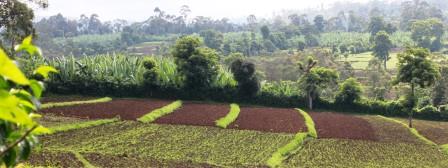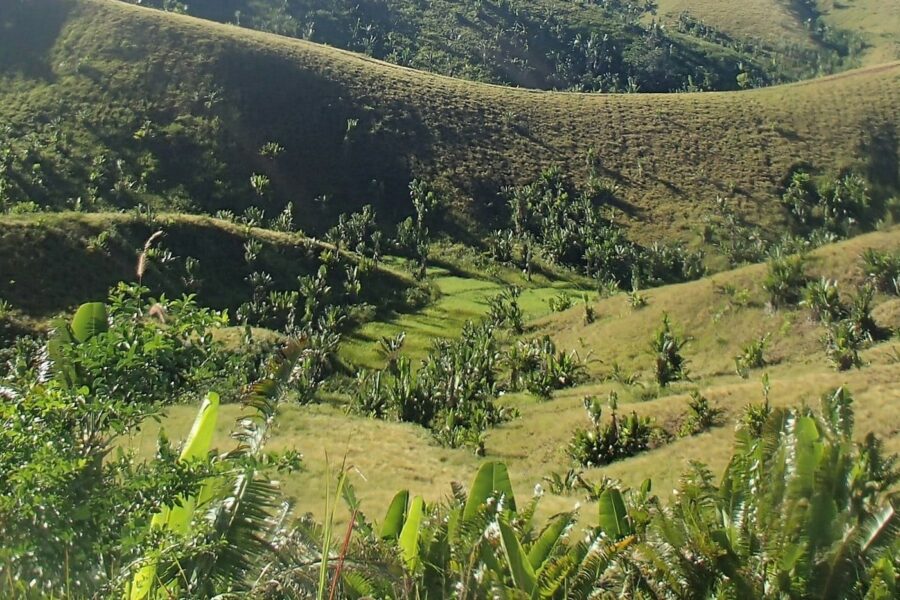In addition to the production of tree seedlings in nurseries, generally using plastic bags/polytubes (which have the advantage of making it easier to transport the seedlings), several alternative techniques are used in tree planting programmes:
- Producing seedlings “in pellets” (or clods) enables the production of a large number of seedlings that are easy to transport with less stress during their transplanting (compared with bare-root seedlings). However, this method, which does not use plastic, requires testing the mixture used to make the pellets beforehand, in order to find the right mix of clay, sand and compost. This method is also best suited to trees that can be transplanted quickly, because once the seedlings have been placed in the pellet, they must be transplanted within 4 weeks, otherwise the pellet will dry out. As the seedlings are very young, it is vital to make the transplanted seedlings clearly visible and to protect them.
- Nursery production of seedlings for bare-root transplanting. The practice of pre-soaking (dip treatment), also illustrated in a note below, helps to improve their survival.
- Planting directly on site, in some cases by pre-germinating the seeds to make the best use of the rainy season and allow the plant to develop sufficiently to survive the dry season.
- The use of wildings, which grow naturally at the foot of trees and can be recovered for transplanting elsewhere.
- The use of cuttings (or macro-cuttings) and layering can be interesting for certain species.
- There is also assisted natural regeneration, which consists of allowing certain species to grow naturally (experiments are under way in Malawi and Ethiopia).
The resources below:
- 4 technical sheets based on the experience in Madagascar (pellets, wildings, dip treatment and direct sowing)
- A short note on the practice of direct on-site sowing used in Madagascar, with an explanation of the method for pre-germinating seeds
- An extract from a small manual in Malawi which briefly presents alternative practices for seedling production.



